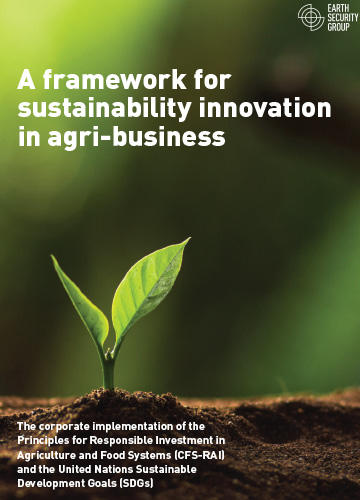
Investing in agriculture is widely recognised as one of the most effective ways to alleviate poverty, improve food security and reduce hunger and malnutrition. Paradoxically, both overseas development aid and domestic investment in agriculture have been declining since the 1990s. The total share of aid to agriculture from the OECD has fallen from nearly 20% in the mid 1980s to a mere 7% in 2015 and has remained at this level since.
There is now a growing recognition of the value of the private sector’s contribution to sustainable evelopment in agriculture, not merely from the financial contribution that the sector can make, but for the scale, longevity and impact, technical and market access that can only be brought by the private sector.
The UN Sustainable Development Goals (SDGs) have specific targets for the private sector. According to the ‘Better Business, Better World’ report of 2017, achieving the SDGs creates at least US$12 trillion in opportunities, with many returns to be generated in the agricultural sectors. The report estimates that low-income food markets could generate between US$155–265 billion per annum and at the same time improve the nutritional benefits of food for 800 million people under nourished and malnourished.
At the same time, global agricultural companies are confronting a more complex set of systemic social and environmental pressures around the world. Seizing opportunities to make more responsible investments at scale and materialising the benefits will require strategic industry cooperation at various levels and with different stakeholder groups.

